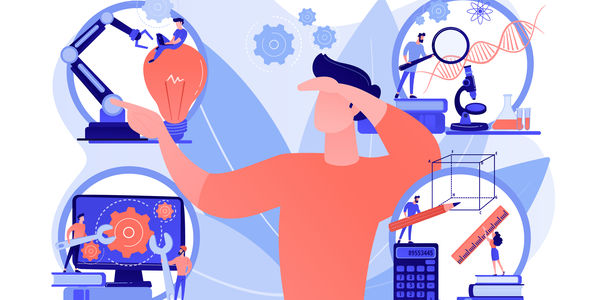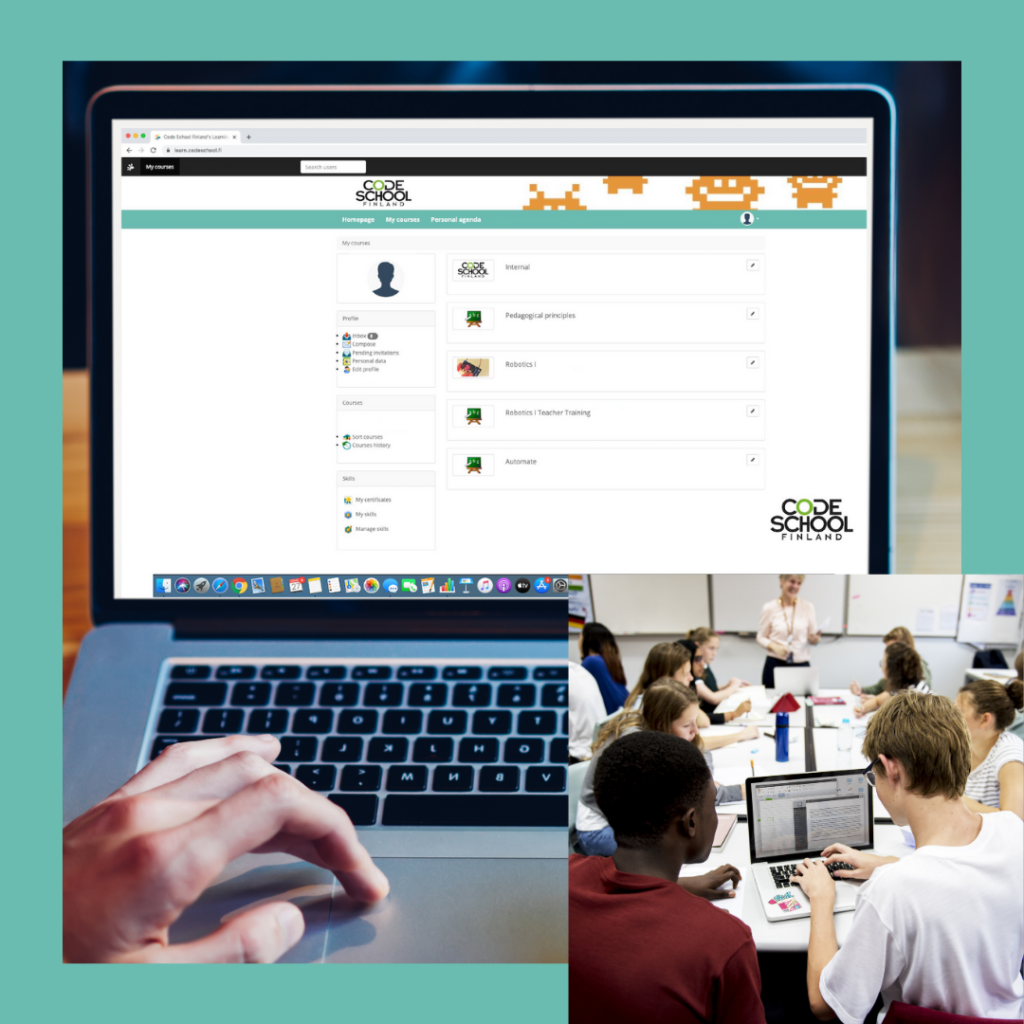
Phenomenon-based learning – integrating multiple school subjects in learning activities – is often named as one of the core working methods for coding education. The idea fits coding perfectly as coding is not learnt for the sake of learning but for tackling real life issues through programming and technology. The phenomenon-based approach (PhenoBL) builds strong connections between various subjects areas, for example coding and literature.
Challenge
PhenoBL challenges the usual form of teacher professional development programs. Often, professional development programs concentrate on teaching certain skills and capabilities, such as coding skills or technological skills. However, when teachers adopt the idea of phenomenon-based learning, they need not only to utilise a new set of skills but to take a different kind of a role as a coach and not as an expert. This means that teacher training concerning phenomenon-based learning needs to focus not only on skills but on teachers’ beliefs and attitudes as well.
4 key elements
So what could future teacher professional development programs do to better align with the principles of phenomenon-based learning? This question is especially crucial in the times of online teacher training, as on-site and face-to-face professional development is not always possible. Code School Finland collected a list of four key elements for future teacher professional development concerning phenomenon-based learning:
- Up-to-date learning materials for students: The coding materials for students need to integrate coding and technology with other school subjects. Only this way the students understand the importance of learning complex phenomena rather than fragmented pieces of facts.
- Up-to-date teacher guides: Not all teachers who teach programming have a teacher diploma in coding education. Teacher guides need to offer concrete tools for deciding the ‘phenomenon’ that is studied with their students. Furthermore, teacher guides need to offer concrete tips for teachers on how to take the role of the coach, rather than the expert, while teaching real-life phenomena.
- Collaboration between teachers: We strongly encourage teachers to attend teacher training programs collaboratively. Maybe all of the teachers in one school who need to teach coding could attend the same program together? The best way to teach students how to code is through active participation and collaboration – the same is true for teachers as well! Professional development concerning phenomenon-based learning is especially effective when the teachers come from different subject areas and design teaching together.
- Assessment and feedback: Active reflection is the key for teachers to develop. For example, teachers might feel insecure at first when their students know more about the phenomenon than they do. Reflection can be promoted through assessment and feedback practices that are aligned with 21st century pedagogy.

Interested in learning more about pedagogy and teacher’s role in coding instruction?
Check out our online course dedicated for in-service and pre-service teachers:
21st Century Coding Pedagogy